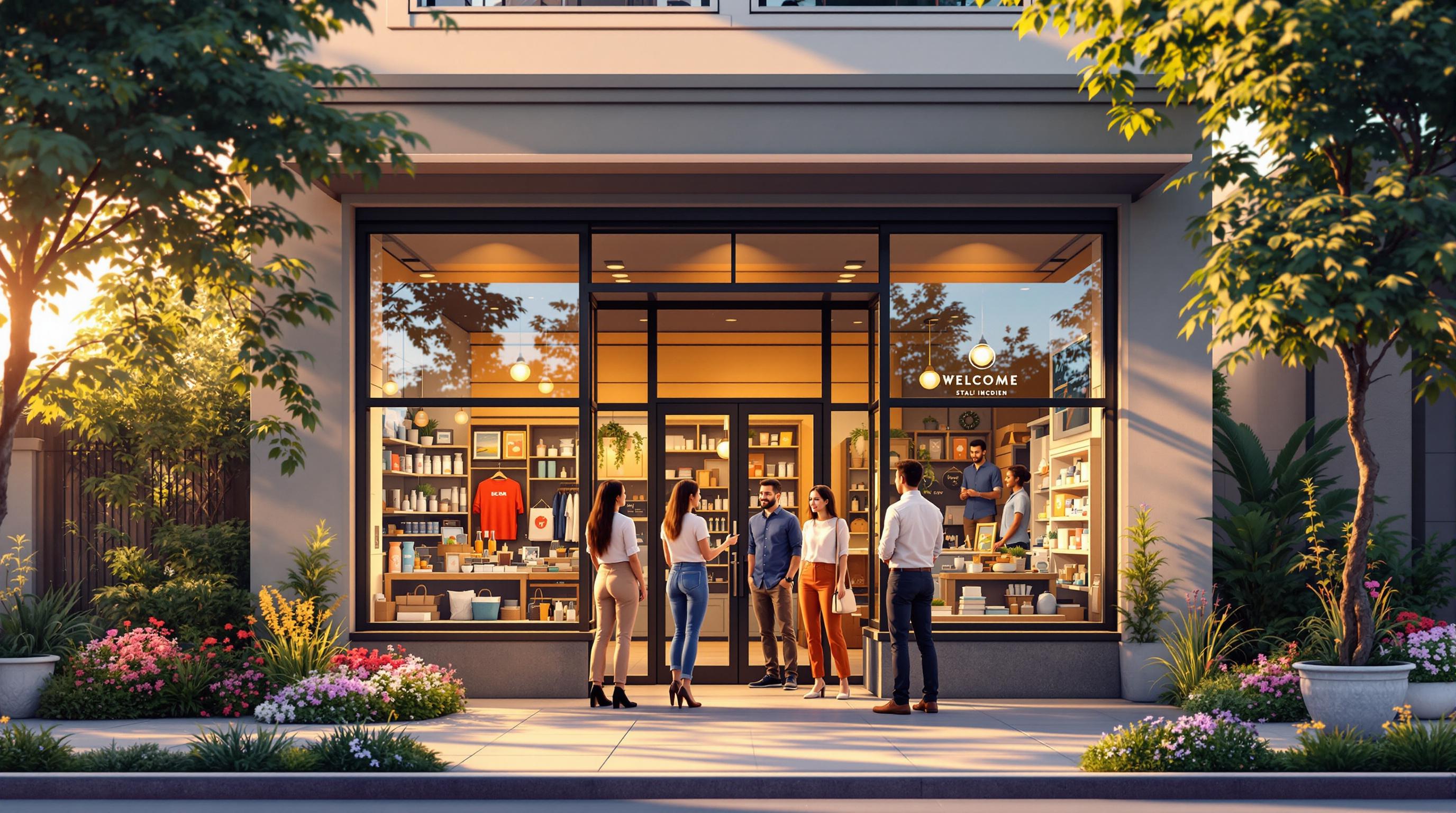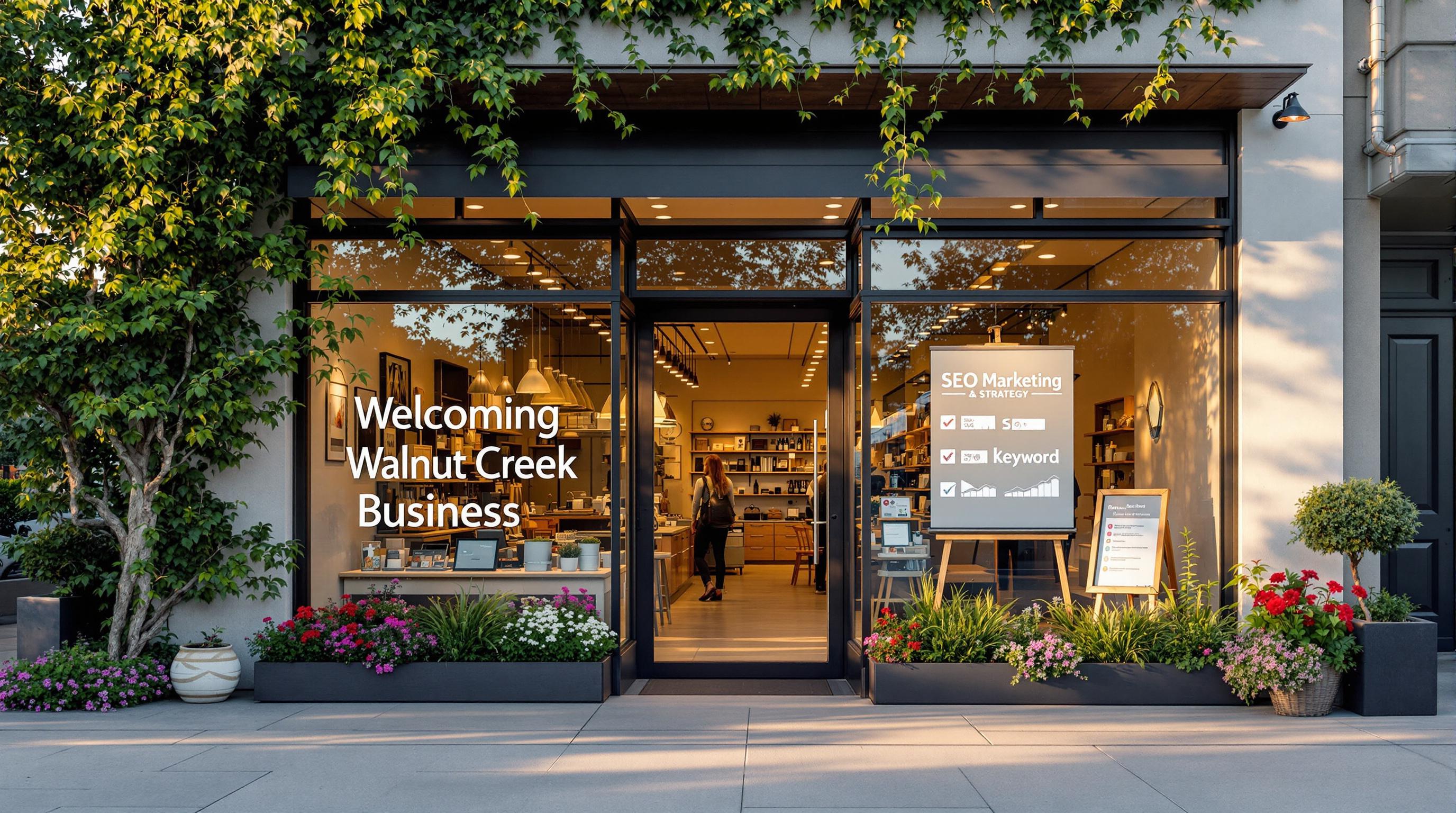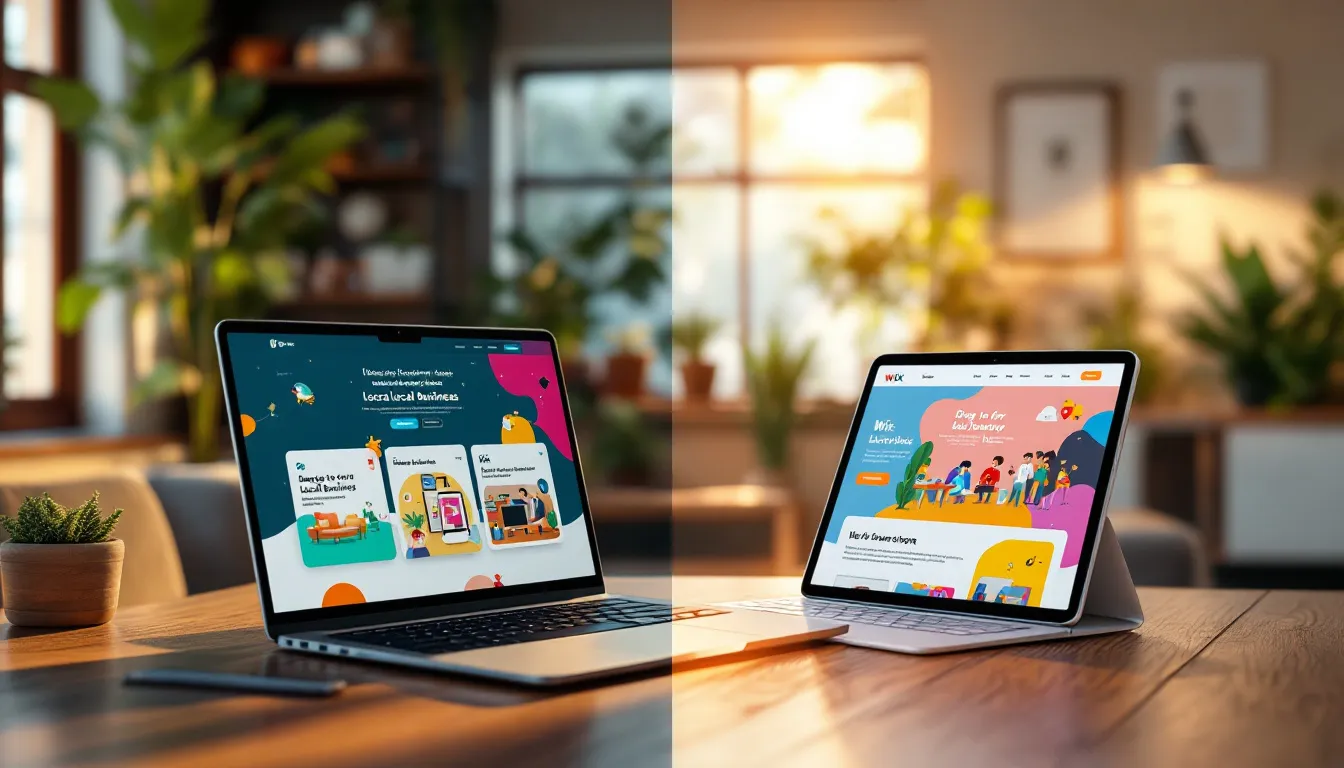Want more traffic without paying for ads? SEO (Search Engine Optimization) helps your site rank higher on Google by optimizing for keywords, creating helpful content, and improving user experience. Here's what matters most:
- Keywords: Use phrases people actually search for, like "best running shoes for flat feet."
- Content: Write clear, useful answers to real questions. Link related pages for better navigation.
- E-E-A-T: Show expertise and trustworthiness with credible authors and sources.
- Technical SEO: Speed up your site, make it mobile-friendly, and use schema markup.
- Local SEO: Update your Google Business Profile and encourage reviews.
SEO is a long-term investment that keeps delivering results, unlike ads. Start by understanding search intent, improving your content, and using tools like Ahrefs or Google Keyword Planner to find opportunities.
Key SEO Concepts
Let's explore three core SEO ideas that can make or break your rankings: matching content with what people are looking for, creating content people actually want to read, and following Google's E-E-A-T standards.
Search Intent and Keywords
Think of search intent as the "why" behind every Google search. When someone types something into Google, they're usually doing one of three things:
- Looking for information (like "how to tie a tie")
- Trying to find a specific website (like "Facebook login")
- Ready to buy something (like "buy iPhone 14 Pro")
Getting this right is a big deal. Here's a real example: In 2023, a small eco-friendly cleaning brand looked at their keyword data and spotted an opportunity with "plastic-free dish soap". They created a detailed guide about it and saw their website traffic jump 45% in just six months.
Want to nail your keyword strategy? Here's what works:
- Go after specific, detailed keywords instead of broad ones. Think "best running shoes for flat feet" rather than just "running shoes"
- Look at what's already ranking on Google's first page - it tells you what kind of content Google thinks people want
- Check out what keywords your competitors are winning with (tools like Ahrefs can help here)
Content Quality and Relevance
Google LOVES content that helps people. Period. But how do you create content that both Google and humans want?
First, answer real questions people are asking. Tools like AnswerThePublic can show you exactly what people want to know about your topic.
Next, link your content together smartly. If you're writing about SEO tools, link it to your guide about keyword research. It helps readers find more useful info and helps Google understand your content better.
Here's proof it works: HubSpot gave their old blog posts a makeover in 2022 - fresh data, better formatting, the works. Result? Their organic traffic shot up 30% in one year.
Fun fact from Nielsen Norman Group: people only read about 20% of the text on a page. That's why breaking up your content with headers and bullet points isn't just pretty - it's necessary.
E-E-A-T and Google Updates
E-E-A-T stands for Experience, Expertise, Authoritativeness, and Trustworthiness. It's Google's way of saying "prove you know what you're talking about."
Want to show Google you're legit? Here's how:
- If you're running a health site, get real doctors and dietitians to write your articles
- Use schema markup (it's like a cheat sheet that helps Google understand your content better)
- Keep up with Google's changes by following Google Search Central Blog or Moz
Look at what happened in 2023: Google rolled out its "Helpful Content Update", and sites like Healthline that followed these principles saw their rankings climb. Meanwhile, sites with thin, unhelpful content took a hit.
SEO Tools and Methods
Want to boost your website's search rankings? Let's look at the tools and techniques that actually work. We'll cover everything from finding the right keywords to making your site run smoothly - perfect for small business owners who want real results.
Tools for Keyword Research
Finding the right keywords is like having a map to your customers - without it, you're just guessing. Here's what works:
Ahrefs and Google Keyword Planner make a powerful combo. Ahrefs helps you spy on competitors and find keywords worth targeting, while Google Keyword Planner shows you what's hot in searches and ads.
Here's proof it works:
- A small candle shop used Ahrefs to find "soy wax candles for gifts" and saw their traffic jump 35% in just 3 months
- An Austin bakery discovered "best gluten-free cupcakes Austin" through Google Keyword Planner and got 20% more visitors in 6 weeks
On-Page SEO Tips
On-page SEO is about making each webpage work harder for you in search results. Here's what to focus on:
Meta Titles and Descriptions: Think of these as your ad in Google's search results. Make them count! A travel blog tweaked their meta description to say "Save money on your next trip with these 10 proven tips" and got 5.8% more clicks in two months.
Internal Linking: Connect your pages like a well-planned city - it helps both visitors and search engines find their way around. Link related content naturally, and watch your site's authority grow.
Content Quality: Put simply: write stuff people want to read. Keep it fresh, back it up with data, and make it easy on the eyes.
Basics of Technical SEO
The nuts and bolts of SEO matter just as much as the content. Here's what you need to know:
Mobile First: Over half of all searches happen on phones now. A local restaurant made their site mobile-friendly and saw 25% more mobile visitors in three months. Use Google's Mobile-Friendly Test to check your site.
Speed Matters: Want proof? An online clothing store made their site faster by shrinking images and using browser caching - sales went up 15% in just one month. Check your speed with Google PageSpeed Insights.
Schema Markup: This is like giving Google a cheat sheet about your content. A real estate agency added schema markup to their listings and got 10% more clicks. It helps search engines show things like prices and dates right in the search results.
Local SEO and Website Development
Best Practices for Local SEO
Want to attract more local customers? Your success in local search depends on three main factors: a well-maintained Google Business Profile, smart use of local keywords, and active review management.
Google Business Profile (GBP) is your digital storefront. Keep your business name, address, phone number, and hours up-to-date across all platforms. Add clear photos and stay on top of customer questions. Here's proof it works: A Denver coffee shop updated their GBP with current hours and fresh menu photos - their foot traffic jumped 20% and online orders rose 15%.
Keywords with location matter. Put them in your website content, meta descriptions, and headers. Take this Miami HVAC company - they added phrases like "emergency AC repair Miami" and "24/7 HVAC services Miami" to their homepage. Result? 30% more local leads in just three months.
Reviews pack a punch too. Moz found that review signals make up 15.44% of local pack ranking factors. An Austin hotel started asking guests for reviews through follow-up emails. Their rating went from 4.2 to 4.8 stars, and direct bookings shot up 25%.
Speed counts - just ask the LA fitness studio that cut their page load time from 4.5 to 2.1 seconds. They saw 15% more membership sign-ups over three months.
SEO and Web Development
Your website needs to do more than just show up in local searches - it needs to turn visitors into customers.
Make it user-friendly: Keep your design clean and simple. Google's Core Web Vitals track how well your site works for users - things like speed and stability. Sites that nail these basics tend to keep visitors longer and sell more.
Get the tech right: With Google's mobile-first approach, your site must work great on phones. A Chicago florist made their site mobile-friendly with fast loading and easy navigation. Their mobile traffic grew 40%, and same-day delivery orders increased 10%. Focus on:
- Optimizing your images
- Using smart caching
- Cutting unnecessary code
Trident Ranking Integration
Need help putting all this together? Look for SEO services that offer both local SEO know-how and technical web skills. The right partner can help you build a strong online presence that brings in local customers and keeps them coming back.
sbb-itb-2e9e799
Advanced SEO Strategies
Building Links for Authority
Want to rank higher on Google? Focus on backlinks - they're strongly tied to first-page rankings [1]. But here's the thing: quality beats quantity every time.
Enter "The Hook" - content so good that people can't help but link to it. Take Backlinko's study of 11.8 million Google search results. This powerhouse piece pulled in over 5,000 backlinks from top-tier sites in just one year [2].
Looking to build links? Try guest posts, team up with influencers, or create share-worthy content. Tools like Ahrefs or BuzzSumo help spot these opportunities. Just remember: while backlinks boost your authority, your content needs regular updates to stay competitive.
Updating and Improving Content
Here's something cool: updating old content can boost your rankings big time. Even a small tweak, like changing "Best SEO Tools for 2023" to "Best SEO Tools for 2024" in your meta description, can bump up clicks by 30% [3].
Want to find content gaps? Tools like SEMrush or Ahrefs have got you covered. One travel blog spotted a gap for "eco-friendly travel tips", wrote about it, and boom - 25% more organic traffic in just two months [4].
Don't forget about broken links - they're like potholes on your website's road. One SaaS company fixed over 100 broken links and saw amazing results: bounce rates dropped 12%, and people stuck around 15% longer [5].
Improving User Experience for SEO
Let's talk user experience - it's what keeps visitors coming back. Google's Core Web Vitals measure three key things: how fast your page loads, how stable it looks, and how quickly it responds to clicks [6].
Internal linking is like building highways between your pages. When Spencer Haws added internal links to 47 articles, 76.6% of those posts jumped up in Google rankings [7].
Speed matters - a lot. Google says just 1 second of delay cuts conversions by 7% [8]. One online store cut their load time in half (3.8 to 1.9 seconds) and saw sales jump 20% in three months [9].
Smart navigation makes a huge difference too. A law firm in Chicago tweaked their site navigation and people spent 35% more time browsing [10]. And heads up: Google's switching to INP from FID in March 2024, putting even more focus on how well your site responds on any device [11].
Conclusion
Trends Shaping SEO
The SEO landscape keeps changing. Here are the key shifts you need to know about:
AI and Voice Search: Tools like ChatGPT and voice search are changing how people look for information online. By 2024, 58% of consumers will use voice search to find local businesses [3]. Want to get ahead? Focus on natural-sounding keywords and questions people actually ask.
User Experience (UX): Google now looks closely at how your website performs. They're introducing INP (Input Delay) in 2024 to replace FID, measuring how fast your site responds when users click or tap. Here's proof it matters: A Chicago law firm tweaked their site navigation and users stuck around 35% longer [10].
Author Expertise: Google wants to know who's behind the content. Articles written by experts tend to rank better. Include detailed author bios and connect them to professional profiles - it helps show Google you know what you're talking about.
Summary of Key Points
Let's break down what really matters for SEO success:
Find the Right Keywords: Get inside your users' heads. What are they searching for? Tools like Google Keyword Planner and Ahrefs help you spot the keywords worth targeting.
Quality Content: Fresh, well-researched content gets noticed. But don't just write - create content that answers real questions.
Show Your Expertise: Google's E-E-A-T guidelines look at your Experience, Expertise, Authority, and Trustworthiness. Back up your content with expert authors and solid sources.
Use the Right Tools: Yoast SEO helps with on-page SEO, SEMrush shows what your competitors are up to, and Google Analytics tells you what's working.
Think Local: If you serve local customers, optimize your Google Business Profile, use location-specific keywords, and keep those reviews coming.
Stay Sharp: Keep your site running smoothly and your content fresh. SEO isn't a set-it-and-forget-it deal - it needs regular attention.
FAQs
How to do SEO for beginners?
Want to start with SEO but feeling overwhelmed? Let's break it down into simple, actionable steps.
First, make sure Google can actually find your website. Use Google Search Console to check if your pages are visible to search engines. Here's a real example: A small e-commerce store fixed their site's visibility settings and saw their organic traffic jump 22% in just three months.
Your website's structure matters too. Use clear, simple URLs like www.example.com/blue-running-shoes instead of confusing strings like www.example.com/p12345. Group your content logically - put all workout content under /workouts/, nutrition articles under /nutrition/, and so on.
Want better rankings? Here's what works:
- Add schema markup to your pages - it's like giving Google a cheat sheet about your content
- Keep your Google Business Profile up-to-date with fresh photos, current hours, and services
- Find the right keywords using Google Keyword Planner or Ahrefs (a local bakery tried this with "best cupcakes in Austin" and saw orders climb 35%)
- Cut down on annoying ads - one travel blog did this and their bounce rate dropped 15%
- Connect your pages with internal links and point to trusted external sources
Is local SEO still relevant?
You bet it is! If you're running a local business, local SEO might be your ticket to more customers.
Think about this: A Chicago dentist spent time updating their Google Business Profile and saw amazing results - 48% more profile views and 30% more bookings in just six weeks.
Here's something even more eye-opening: A 2023 study found that 87% of consumers check online reviews before choosing a local business [3]. That's why you need both location-specific keywords AND genuine customer reviews.
"Your position in web results is also a factor, so SEO best practices also apply to local search optimization" [6]
Pro tip: Focus on getting real reviews on Google and Yelp while naturally mentioning your location in your content. It's not about gaming the system - it's about showing Google and your customers that you're an active part of your local community.



